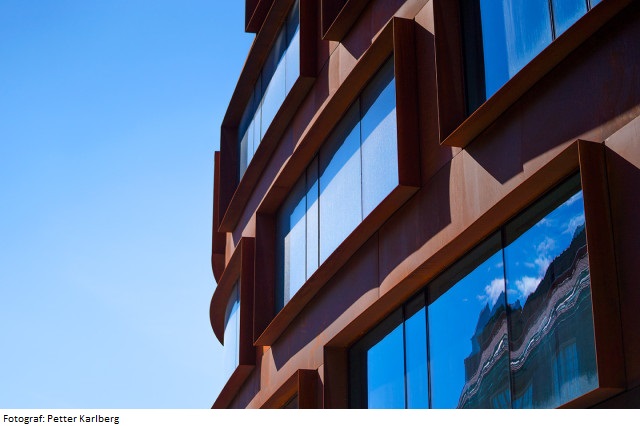Undervisningen är studiobaserad. Specifika kursuppgifter, teman, gestaltningsförutsättningar och inlämningskrav justeras och fastställs inför varje läsår av examinatorn. Studioprojekten innehåller både individuellt arbete och lagarbete enligt planering och kursuppgifter som fastställs av examinator.
A42C14 Studioprojekt, avancerad nivå 12,0 hp

Information per kursomgång
Information för VT 2026 Start 2026-01-13 programstuderande
- Studielokalisering
KTH Campus
- Varaktighet
- 2026-01-13 - 2026-03-13
- Perioder
VT 2026: P3 (12 hp)
- Studietakt
100%
- Anmälningskod
60089
- Undervisningsform
Normal Dagtid
- Undervisningsspråk
Engelska
- Kurs-PM
- Kurs-PM är inte publicerat
- Antal platser
Min: 5
- Målgrupp
- Endast för ARKIT åk 4 och TARKM åk 1 samt utbytesstudenter som kommer inom ett utbytesprogram inom ARKIT.
- Planerade schemamoduler
- [object Object]
- Schema
Kontakt
Kursplan som PDF
Notera: all information från kursplanen visas i tillgängligt format på denna sida.
Kursplan A42C14 (HT 2024–)Innehåll och lärandemål
Kursinnehåll
Lärandemål
Studioprojektens övergripande syfte är att tillgodose individens fördjupning och individuell progression av kunskap, färdigheter och förhållningssätt inom arkitektur och relaterade kunskapsområden. Under arkitektutbildningen på avancerade nivå /inom masterprogam i arkitektur genomför den enskilde studenten sex studioprojekt i detta syfte. Varje studioprojekt ger studenten tillfälle att pröva och utveckla färdigheter på varierade tillämpningsområden och får stöd för att reflektera över sitt lärande.
Efter kursen ska studenten kunna
• genomföra och utvärdera kvalificerade arkitekturuppgifter kritiskt, kreativt och självständigt på så sätt att en progression av kunskap och förståelse, färdigheter och förmåga, värderingssätt och förhållningssätt samt arkitektonisk kvalitet kan påvisas i relation till tidigare genomförda projektarbeten under utbildningen.
• presentera, visualisera och diskutera det genomförda projektet utifrån en relevant diskurs och en bred arkitekturkontext, med stöd av lämpliga representationstekniker.
• vid anvisade tillfällen, visa förmåga till lagarbete och samverkan i grupper med olika sammansättning
• redovisa en självständig arbetsprocess och reflektion kring det egna lärandet
• kontinuerligt dokumentera process och resultat, och vid uppmaning tillgängliggöra genomförda kursinlämningar i en digital portfolio på anvisad plattform
• kritiskt reflektera kring egna undersökningar och projekt utifrån ett hållbarhetsperspektiv
• tydligt visa på en kunskapsprogression. Progressionens grad och omfattning beror på hur många projekt på avancerad nivå som studenten tidigare har genomfört, som vid kursens start ska redovisas i en portfolio för ansvarig lärare som bedömer detta.
Kurslitteratur och förberedelser
Särskild behörighet
Kandidatexamen inom området arkitektur, eller ett utbildningsprogram som liknar KTH Arkitektutbildningens grundnivå (180hp).
Kurslitteratur
Examination och slutförande
Betygsskala
Examination
- EXMN - Examination studioprojekt, 12,0 hp, betygsskala: P, F
Examinator beslutar, baserat på rekommendation från KTH:s handläggare av stöd till studenter med funktionsnedsättning, om eventuell anpassad examination för studenter med dokumenterad, varaktig funktionsnedsättning.
Examinator får medge annan examinationsform vid omexamination av enstaka studenter.
När kurs inte längre ges har student möjlighet att examineras under ytterligare två läsår.
Examination sker efter en övergripande bedömning av:
- handledningstillfällen
- presentationer
- kritikgenomgångar av projektarbete och kursuppgifter.
Redovisning ska ske inom kursens givna tidsramar.
Övriga krav för slutbetyg
En förutsättning för examination är 80% närvaro och aktivt deltagande vid föreläsningar, seminarier, handledningar och andra kursaktiviteter samt godkända projektuppgifter.
Obligatorisk närvaro vid kritikgenomgång.
Särskilda kompletteringsregler gäller. Kompletteringsreglerna finns tillgängliga på programwebben.
Examinator
Etiskt förhållningssätt
- Vid grupparbete har alla i gruppen ansvar för gruppens arbete.
- Vid examination ska varje student ärligt redovisa hjälp som erhållits och källor som använts.
- Vid muntlig examination ska varje student kunna redogöra för hela uppgiften och hela lösningen.